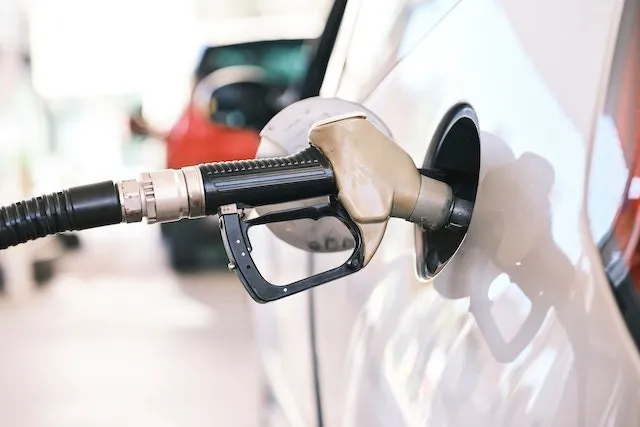Have you ever faced an unexpected financial crisis? Maybe it was a sudden car repair, an unexpected medical bill, or even a job loss. If you’ve been in this situation, you know how stressful it can be when you’re not prepared. I’ve lived through these moments myself, especially as my family and I were settling into our new life in Australia. It’s during these tough times that the importance of having an emergency fund becomes crystal clear.
An emergency fund is essentially a financial safety net designed to cover unexpected expenses. Experts often recommend having at least three to six months’ worth of living expenses saved up. But why is having this fund so crucial? Let’s dive into the top five benefits of establishing an emergency fund, and I hope my experiences will inspire you to start building one if you haven’t already.
1. Preparing for Life’s Financial Surprises

Life can be unpredictable, and one of the greatest benefits of having an emergency fund is the peace of mind it provides. It acts as a buffer against those unexpected financial surprises that life throws your way. When I first arrived in Australia, my husband and I experienced a job loss that left us scrambling to make ends meet. Looking back, we wished we had an emergency fund to cushion that blow.
When you have money set aside, you can face challenges head-on. Instead of feeling panicked, you have the resources to address whatever comes your way—be it car repairs, medical expenses, or even a job loss. This safety net can make a world of difference, transforming a stressful situation into a manageable one. Trust me; it’s worth the effort to save for those rainy days.
2. Preventing Unexpected Spending
Imagine this scenario: your car breaks down, and the repair costs are significant. Without an emergency fund, you might have to dip into your regular savings or worse, take on debt to cover those unexpected expenses. This can throw your entire budget out of whack, not just for the month but potentially for many months to come.
When my family faced unexpected car repairs, we found ourselves scrambling to make budget adjustments. Having an emergency fund in place would have allowed us to cover those costs without disrupting our financial stability. Instead of feeling like we were playing catch-up, we could have simply taken a deep breath and managed the situation without stress. An emergency fund is your safeguard against unplanned expenses, allowing you to keep your financial goals on track.
3. Reducing Stress and Providing Peace of Mind

The emotional toll of financial uncertainty can be immense. Having an emergency fund alleviates a lot of that stress, offering you the peace of mind that comes from knowing you have a safety net to fall back on. Personally, I’ve experienced nights filled with anxiety, worrying about how we would handle an unexpected bill or situation.
Since we started saving, I can honestly say that it has dramatically reduced our stress levels. Knowing that we have a financial cushion allows us to focus on our day-to-day lives without the constant worry of “What if?” The moment you have that fund established, you can sleep a little better at night, knowing you’re prepared for whatever life may throw your way.
4. Protecting Your Assets
Another crucial benefit of having an emergency fund is asset protection. Life can turn upside down in an instant, and if you’re not prepared, you might find yourself having to sell off assets to cover unexpected expenses. This could mean cashing out investments, dipping into retirement funds, or even selling property—none of which are ideal scenarios.
With an emergency fund, you have the financial resources to manage crises without jeopardizing your assets. For instance, during the pandemic, many people were forced to access their superannuation or liquidate investments. We’ve learned from those experiences that having a dedicated emergency fund allows you to keep your assets intact. You can weather the storm without making hasty decisions that could hurt your long-term financial health.
5. Avoiding Bad Financial Decisions

Financial emergencies can lead to poor decision-making, often out of panic or desperation. Without an emergency fund, you might feel compelled to borrow money from friends, apply for high-interest credit cards, or take on additional loans. These choices can create a cycle of debt that’s difficult to escape.
By having an emergency fund, you equip yourself with the financial resilience needed to navigate unexpected challenges. Instead of feeling trapped and making rushed decisions, you have the confidence that comes from knowing you can cover unforeseen expenses. This buffer allows you to think clearly and make informed choices, rather than succumbing to immediate financial pressures.
Conclusion: Start Building Your Emergency Fund Today
The benefits of having an emergency fund are undeniable. It prepares you for financial surprises, prevents unexpected spending, reduces stress, protects your assets, and helps you avoid poor financial decisions. If you haven’t started saving yet, I encourage you to make it a priority.
Building an emergency fund might require some sacrifices—maybe cutting back on dining out or forgoing that extra subscription service—but the long-term peace of mind and financial stability it brings are worth it. Take it from me; having a safety net has changed our family’s approach to money and allowed us to focus on what truly matters: our well-being and future.
So, take the first step today. Set aside a small amount regularly, and watch as your emergency fund grows. You’ll be grateful in the future when life throws those curveballs your way, knowing you’re prepared to handle them with confidence. Remember, the journey of a thousand miles begins with a single step—start building your emergency fund today, and secure your financial future for the unexpected!


